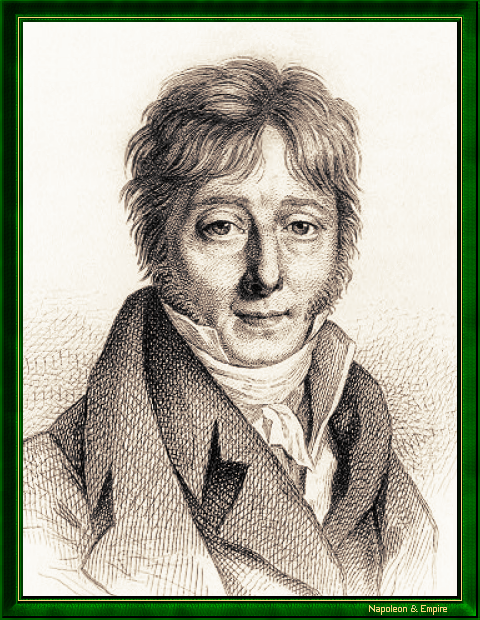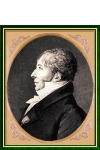Jean-François Lesueur
Knight of the Légion d'Honneur
Pronunciation:

Jean-François Lesueur was born in Drucat-Plessiel on February 15, 1760, into an old family of Picardy farmers. He learned music in the Abbeville and Amiens cathedral choirs, and studied in the latter city.
In 1786, after having served as Maître de chapelle in a number of towns (Sées, Dijon, Le Mans, Tours), he was called upon by the choir of Notre-Dame de Paris. Despite immense popular success, Lesueur's innovations displeased his employers. The composer justified his choices in his Exposé d'une musique une, imitative et particulière à chaque solennité (1787), but was nevertheless deprived of his job in 1788, under the pretext of abandonment of post, while staying in London. He spent the next four years away from Paris.
Returning to the capital in 1792, he staged the operas La Caverne (which ran for over fourteen months), Paul et Virginie and Télémaque during the Revolution. Although Lesueur had already been appointed professor at the Ecole de la garde nationale in November 1793, his career really took off when he was appointed inspector of education at the newly founded Conservatoire in 1795 (with François-Joseph Gossé, known as Gossec, André Grétry, Etienne Méhul and Luigi Cherubini). In this position, Lesueur helped write the Principes élémentaires de la musique and the Solfèges du Conservatoire.
In 1800, his monumental Chant du premier vendémiaire, requiring four orchestras and four choirs, was performed at Les Invalides . Two years later, on September 23, 1802, he lost his position as inspector at the Conservatoire following publication of his pamphlet Projet d'un plan général de l'instruction musicale en France, in which he attacked the institution and its director, who had made the mistake of preferring an opera by Charles Catel to his own. Lesueur was going through a difficult period at the time, following the loss of his salary.
Fortunately, the First Consul called on him to replace Giovanni Paisiello as Kapellmeister of the Tuileries in 1804. That same year, Lesueur also composed a Marche triomphale, which he conducted at Notre-Dame de Paris for Napoleon I's coronation . This official recognition enabled Lesueur to stage Ossian ou les Bardes at the Opéra. The work, which turned out to be the first Romantic opera, was a great success and became one of the Emperor's favorites. The composer was also awarded the Chevalier de la Légion d'honneur.
Le Triomphe de Trajan (1807), a grand spectacle opera, also won the approval of both the public and the Emperor. La Mort d'Adam (1809), on the other hand, was a failure, and Alexandre à Babylone, composed at the end of the Empire, was never performed. Meanwhile, in 1813, Lesueur became a member of the Académie des Beaux-Arts, replacing Grétry.
During the Restoration, he was appointed court composer and conductor at the Opéra, before being appointed head of a composition class at the Conservatoire in 1817 or January 1818, whose most illustrious pupil would be Hector Berlioz, but who would also welcome Ambroise Thomas and Charles Gounod.
Lesueur died in Paris on October 6, 1837, and was buried in the Père-Lachaise cemetery, 11th division .
"Jean-François Lesueur". Engraving by Auguste Legrand.

Lesueur's use of choral and instrumental mass effects, as well as his taste for lavish staging, were to have a major influence on early Romantic opera.
Other portraits

"Jean-François Lesueur". Engraving by Edme Quenedey.